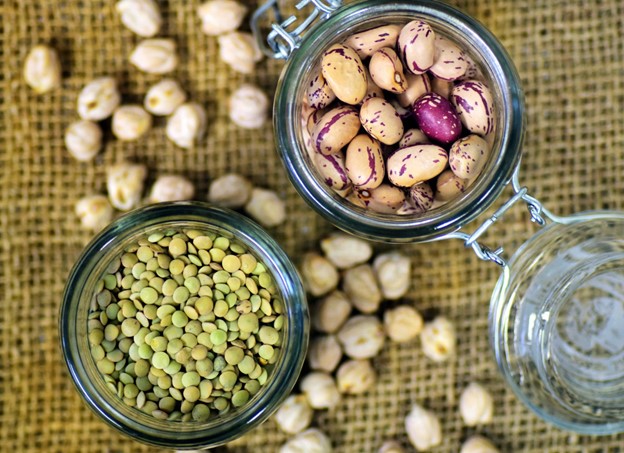Why Nutritionists Are Calling Beans the Ultimate Pantry Hero
Beans have been a staple in diets around the world for centuries, and for good reason. Affordable, versatile, and nutrient-dense, they’re earning their rightful place as a must-have in any pantry. Nutritionists are increasingly hailing beans as the “ultimate pantry hero” due to their numerous health benefits and culinary flexibility. Let’s dive into why beans deserve this glowing reputation.
Packed with Essential Nutrients
Beans are nutritional powerhouses. They are rich in:
- Protein: A fantastic plant-based protein source, beans are perfect for vegetarians and meat-eaters alike.
- Fiber: Just one cup of beans can provide up to half of your daily fiber needs, promoting healthy digestion and helping regulate blood sugar levels.
- Vitamins and Minerals: Beans are loaded with iron, magnesium, potassium, and B vitamins, all essential for overall health.
Promote Heart Health
Beans are excellent for heart health due to their high fiber and potassium content. They can help:
- Lower LDL (“bad”) cholesterol levels.
- Reduce blood pressure.
- Support healthy blood vessel function.
Studies have shown that a diet rich in beans can significantly lower the risk of cardiovascular disease, making them a heart-friendly pantry staple.
Support Weight Management
Beans are low in fat and calories but high in protein and fiber, which help you feel full and satisfied. This makes them an excellent choice for those looking to manage or lose weight. Their low glycemic index also ensures a steady release of energy, reducing cravings and energy dips.
Affordable and Sustainable
In addition to being highly nutritious, beans are incredibly economical. A bag of dried beans or a few cans cost only a few dollars, yet they can form the base of multiple meals.
Environmentally, beans are a sustainable choice. They require fewer resources to produce compared to meat and are an excellent crop for improving soil health. Adding beans to your diet is a small change with a big impact on the planet.
Incredibly Versatile
Beans come in a variety of types, including black beans, chickpeas, kidney beans, and lentils, each with its own unique flavor and texture. They can be used in:
- Soups and Stews: A classic choice for comfort food.
- Salads: Add protein and texture to fresh greens.
- Snacks: Roasted chickpeas or bean dips like hummus.
- Main Dishes: Think chili, bean burgers, or tacos.
- Desserts: Yes, even desserts! Black bean brownies or chickpea blondies are nutrient-packed treats.
Long Shelf Life
Beans have an impressive shelf life, especially dried varieties, which can last for years when stored properly. Canned beans are also a convenient option, lasting for months in your pantry and requiring minimal preparation.
How to Get Started
Adding beans to your diet is simple. Here are a few tips:
- Start Small: If you’re not used to eating beans, incorporate them gradually to avoid digestive discomfort.
- Experiment: Try different types of beans and recipes to find your favorites.
- Prep Ahead: Cook a large batch of beans and freeze portions for quick meals.
- Rinse Well: If using canned beans, rinse them to reduce sodium content.
To learn more, check out this summary from The Wall Street Journal.
Beans are the ultimate pantry hero for their affordability, sustainability, and unmatched nutritional benefits. Whether you’re looking to boost your health, save money, or expand your culinary repertoire, beans have you covered.
Are you interested in enhancing your daily diet with Omega-3 fatty acids? Look no further than Asher Longevity Institute’s Marine Fish Oil supplement. Omega-3 fatty acids can help reduce the risk of heart disease by reducing triglyceride levels and potentially lowering cholesterol.




